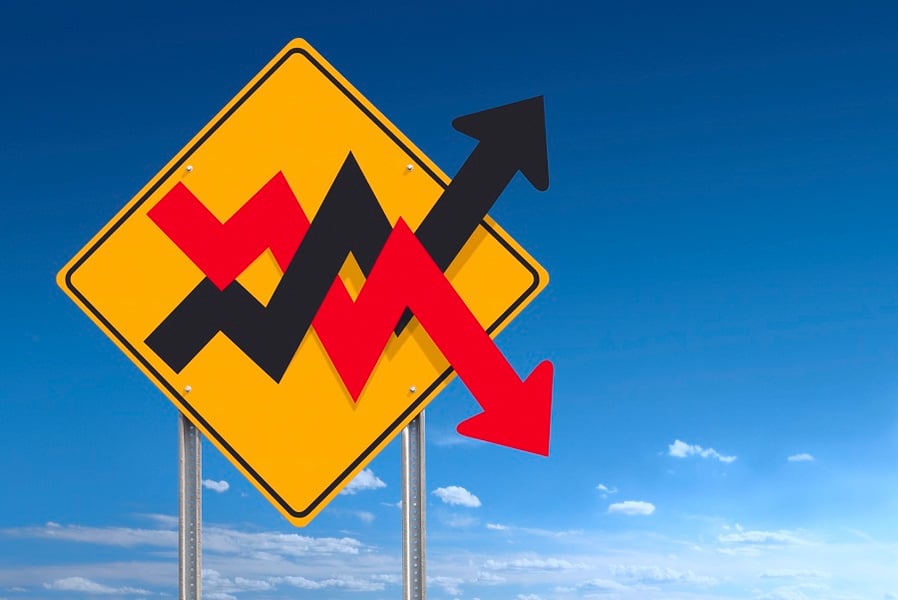

Corporate America has a lot of worries, including tariffs, inflation and consumer demand. A recession isn’t one of them.
Executives for companies listed on the S&P 500 have so far mentioned an economic contraction fewer than 300 times during second-quarter earnings calls, near the lowest in data compiled by Bloomberg going back to 2001. That’s a dramatic shift from the previous quarter, when concerns about a downturn spiked following sweeping US tariffs.
US stocks have rallied to record highs as companies enjoyed their best reporting season in more than three years, with a 10.5% increase in earnings per share against a pre-season estimate of just 2.8%, according to data compiled by BI. The difference of 7.7 percentage points is the highest since late 2021.
An analysis by RBC Capital Markets shows the tone among US executives has improved as the season winds down. They found mixed feedback on consumer demand, with some companies pointing to steady trends while others flagged delays.
Consumer-oriented firms have signaled that customers are “resilient yet cautious, value-seeking, trading down and selective,” strategist Lori Calvasina said.
While recent data have signaled slowing in the economy, investors are optimistic that the Federal Reserve will reduce interest rates in time to avert a recession. Swaps traders are pricing in about 100 basis points of cuts by mid-2026. The probability of a recession is receding, now at 35%, down from 40% in late June.
Investor sentiment has been improving as well. The latest survey from Bank of America Corp. was the most bullish in six months, since before President Donald Trump’s sweeping tariffs roiled financial markets and stoked worries about a recession. BofA strategist Michael Hartnett said investors now see the lowest probability of a hard landing since January.
And while the average US tariff rate has now risen to 15.2%, the highest since the World War II era, Deutsche Bank AG strategists said only some companies experienced levies as “a sizable headwind” in the second quarter.
“By and large, the hit was modest and significantly lower than previously feared, although it is likely to grow,” strategist Binky Chadha said. “Several high-profile companies conspicuously did not mention tariffs at all, even in passing.”
Some market forecasters including at Citigroup Inc. have turned more optimistic about the S&P 500’s trajectory in the second half, as they expect tax cuts to shore up earnings after an already solid season.
“Earnings proved relatively resilient to the tariff landscape, and though the growth rate slowed year-on-year from the first quarter, it was nonetheless much stronger than anticipated,” said Gina Martin Adams, chief equity strategist at Bloomberg Intelligence. “This helped to improve sentiment.”

Experts flag potential risks for seniors as headline readings for July obscure higher jumps in key price categories.

The President's comments on social media came after analysts sounded notes of caution on the impact on consumer prices.

The order from the White House would bend fiduciary principles to benefit the alternative investments industry alone, argues the Institute for the Fiduciary Standard.

A federal judge denied CEO and managing principal James Lukezic's urgent bid to halt FINRA discipline over $1.1 million in trades, putting industry compliance under the microscope.

Industry group IRI hails regulator's reversal as a win for financial professionals, plan sponsors, and retirement savers.
Orion's Tom Wilson on delivering coordinated, high-touch service in a world where returns alone no longer set you apart.
Barely a decade old, registered index-linked annuities have quickly surged in popularity, thanks to their unique blend of protection and growth potential—an appealing option for investors looking to chart a steadier course through today's choppy market waters, says Myles Lambert, Brighthouse Financial.
